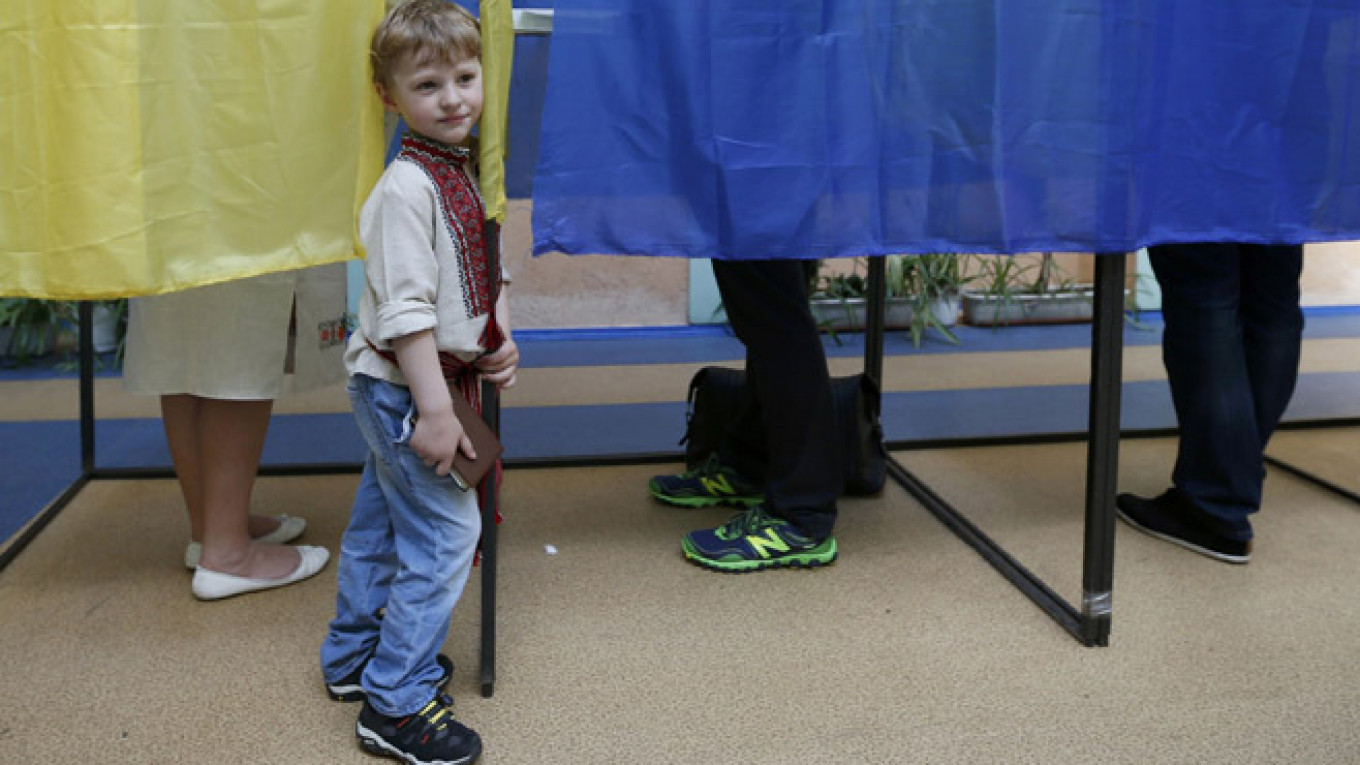Three months after protesters toppled Ukrainian President Viktor Yanukovych and his government, unleashing a wave of unrest and chaos, the country has elected a new president. But President Vladimir Putin, who deployed troops to annex Crimea at his earliest opportunity, remains the key figure shaping Ukraine's future — and he is continuing to propel Ukraine toward something far more dangerous than a new Cold War.
By placing himself firmly in the driver's seat of Russia's future, Putin has simplified the task of those who seek to understand the country.
In fact, his actions are guided by a single goal, and it is not the imperial ambition that is usually thought to determine Putin's actions. Instead, every policy is subordinate to Putin's goal of ruling Russia for as long as he lives.
Putin's ambition is not the result of a pathological lust for power. Instead, it is based on entirely realistic concerns for his personal safety. He understands the laws of the autocratic system that he has helped to rebuild in Russia — a system in which leaders may, like Libya's Colonel Muammar Qaddafi or Iraq's Saddam Hussein, ultimately find themselves punished if their power fails them.
Viewed from this perspective, Putin's strategy in Ukraine has been consistent and logical at every stage.
In the protests in Kiev's Maidan Square, he saw the prospect of Ukraine transcending the corrupt post-communist authoritarianism that his own regime embodies. Ukraine's move toward a European model of economic and political competition, Putin feared, would spur similar demands in Russia.
In order to prevent such an outcome, Ukraine's revolution against Yanukovych, the monumentally corrupt Kremlin puppet, had to be strangled in its cradle and discredited in the eyes of the Russian people. These goals were evident in the speech that Putin delivered to Russia's political elites in March, following the annexation of Crimea.
But Putin's actions in Ukraine have done more than humble Russia's democrats. By focusing on the ethnic Russian majority in Crimea and declaring his right to "protect" ethnic Russians abroad, his legitimating myth now includes the role of national savior, which could enable him to retain power indefinitely.
Of course, Putin's rise to power was buttressed by another myth — that of a vigorous young KGB officer capable of stopping the Russian Federation's disintegration by "drowning" the Chechens in "an outhouse," stabilizing the economy, and using the country's vast natural-resource wealth to enhance prosperity. But that myth has now worn thin.
Putin has observed firsthand what happens when a ruling myth collapses. The Soviet Union was sustained in part by the population's confidence that communism was the best route to a just society. When the myth disintegrated, so did the union.
From the outset of his rule in 2000, Putin has been determined not to make the same mistake. With the help of Russia's media, he hopes to recast himself as the Russian messiah, compelling ethnic kin everywhere to support his leadership in perpetuity.
And, judging by the widespread support Crimea's annexation has met with in Russia, Putin's plan seems to be working so far.
Andrei Piontkovsky is a Russian political scientist and a visiting fellow at the Hudson Institute in Washington, D.C. © Project Syndicate.
A Message from The Moscow Times:
Dear readers,
We are facing unprecedented challenges. Russia's Prosecutor General's Office has designated The Moscow Times as an "undesirable" organization, criminalizing our work and putting our staff at risk of prosecution. This follows our earlier unjust labeling as a "foreign agent."
These actions are direct attempts to silence independent journalism in Russia. The authorities claim our work "discredits the decisions of the Russian leadership." We see things differently: we strive to provide accurate, unbiased reporting on Russia.
We, the journalists of The Moscow Times, refuse to be silenced. But to continue our work, we need your help.
Your support, no matter how small, makes a world of difference. If you can, please support us monthly starting from just $2. It's quick to set up, and every contribution makes a significant impact.
By supporting The Moscow Times, you're defending open, independent journalism in the face of repression. Thank you for standing with us.
Remind me later.






